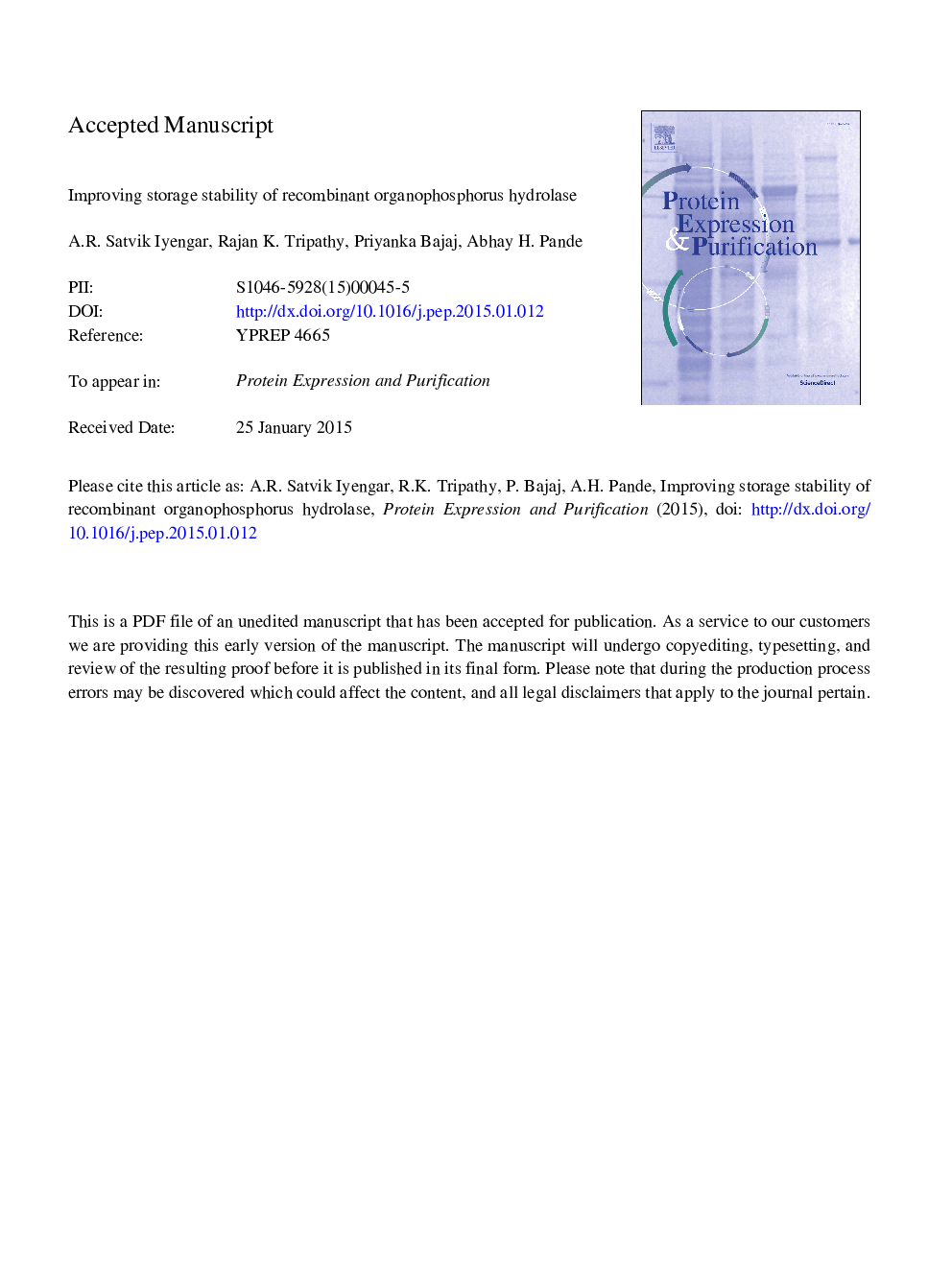| Article ID | Journal | Published Year | Pages | File Type |
|---|---|---|---|---|
| 8360190 | Protein Expression and Purification | 2015 | 32 Pages |
Abstract
Organophosphorus hydrolase (OPH) is a â¼38 kDa enzyme encoded by opd gene of Flavobacterium sp. The enzyme can hydrolyze and inactivate variety of organophosphate (OP)-compounds, including chemical warfare nerve agents. Thus, OPH is a strong candidate for the development of therapeutic intervention against OP-poisoning in humans and other animals. It is also a promising bio-decontaminating agent for clean-up of OP-contaminated objects and areas. For successful commercial application, long-term storage stability of purified OPH enzyme is important. In this study we have cloned and expressed recombinant OPH (r-OPH) in Escherichia coli and the effect of different excipients on the long-term storage stability of purified enzyme was analyzed. The enzyme was stored in either aqueous solution or in lyophilized form at 25 °C for 60 days in the presence or absence of different excipients and the stability of the enzyme was determined by monitoring the paraoxon-hydrolyzing activity. Our results suggest that, (a) maltose, trehalose, arginine and proline were most effective in stabilizing the enzyme when stored in aqueous buffer at 25 °C, and (b) maltose, trehalose, and mannose exerted maximum stabilization effect when the enzyme was stored in lyophilized form at 25 °C for 60 days. The study shows that common excipients can be used to stabilize purified OPH enzyme in order to store it for long period of time under different storage conditions. The results of this study can be used to develop formulation(s) of OPH enzyme for commercial use.
Related Topics
Life Sciences
Biochemistry, Genetics and Molecular Biology
Biochemistry
Authors
A.R. Satvik Iyengar, Rajan K. Tripathy, Priyanka Bajaj, Abhay H. Pande,
